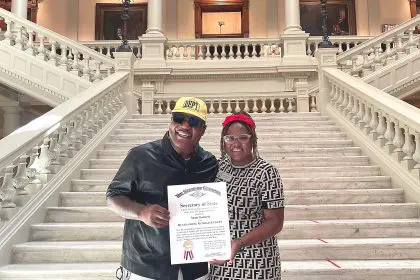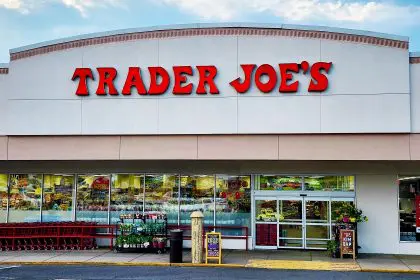In the wake of Hurricane Helene’s devastation and with Hurricane Milton looming, the Federal Emergency Management Agency (FEMA) has mobilized to assist affected communities. Michael Hart, a FEMA spokesperson, sat down with Munson Steed of Rolling Out to discuss the agency’s ongoing response efforts, dispel rumors, and provide crucial information for those seeking aid. This interview offers insights into FEMA’s operations and the resources available to disaster survivors.
[Editor’s note: This is a truncated transcribe of a longer video interview. Please see the video for the extended version. Some errors may occur.]
Can you explain FEMA’s current role in the aftermath of Hurricane Helene and the approach to Hurricane Milton?
Well, thank you so much for having me today. I’d just like to say our hearts and our condolences go out to everyone who has been affected by Hurricane Helene, those who are in the path of Hurricane Milton. And what we are going through right now is doing our level best to help people who were affected by Hurricane Helene to help them begin the long road to recovery. Right now, we’re working in several states in various degrees of response still and recovery. And what we’re doing now, we want everyone to get in contact with FEMA as quickly as possible if they have not already. And that is a critical part in them jump-starting their road to recovery. Now they can do that in one of three ways. They can dial 1-800-621-3362. They can visit disasterassistance.gov or they can download the FEMA app and submit their application for assistance that way.
How prepared is FEMA as a nation, and what’s happening on the ground right now?
Well, as you know, FEMA’s mission is to help people before, during, and after disasters. So, we’re always on the ground. We have 10 regions throughout the country and we’re always in close contact with our state counterparts, our local counterparts, local officials, state emergency managers. So, we’re prepared for disasters whenever they might come at any time throughout the year. We work closely with our federal agency partners, voluntary organizations, and also nonprofit organizations. Anytime we have a disaster of this magnitude, we’re working closely. It’s a whole-of-government response and recovery effort. It’s not just FEMA. Yes, we do work very diligently and lead the coordination efforts, but this is a whole-of-government effort working alongside our state partners as well.
Are there any states omitted from FEMA support? What are some common misconceptions about FEMA’s response?
Well, one thing that we’ve seen is that FEMA is not on the ground right now. We are working diligently in all states who are affected by Hurricane Helene. We’ve got resources on the ground. We’ve got people on the ground working around the clock to make sure that anyone who is affected by the storm is getting all the assistance that they are qualified to receive. We understand that this is going to be one of the most stressful times in people’s lives. So, what we’re trying to do is make sure that these critical steps in getting people back on the right foot, getting them back to some state of normalcy, that’s our main goal right now.
For families struggling to survive without phone or internet access, what direction would you give them to get in contact with FEMA?
Well, in some areas right now, in some of the most affected counties that were directly hit by Hurricane Helene, we have people on the ground who are going door to door to help people get registered for assistance. And we also have teams at some of the shelters located throughout all of the states working diligently to make sure people have access to the internet and are able to submit their application and get that process working as quickly as possible.
Can you describe FEMA’s mission and the level of empathy Americans should have for one another during this time?
As I mentioned earlier, our mission is to help people before, during, and after disasters. With our agency, with the people who I work alongside, we come to work every day to serve people, to serve others, to make sure that others’ lives are working toward becoming whole again. Anytime that we are called into service in times like this, as I mentioned earlier, it’s because somebody, some families, some communities, cities, even total states are in a dire situation. And all they want is to be able to have somebody who can help them get back to some type of normalcy, as I mentioned earlier, to get their life back, to get some type of relief from the strain that they’re under right now. And that is our mission, to work alongside federal agencies, our partners, neighbor helping neighbor. It’s a collective effort to help these communities get back on their feet.











